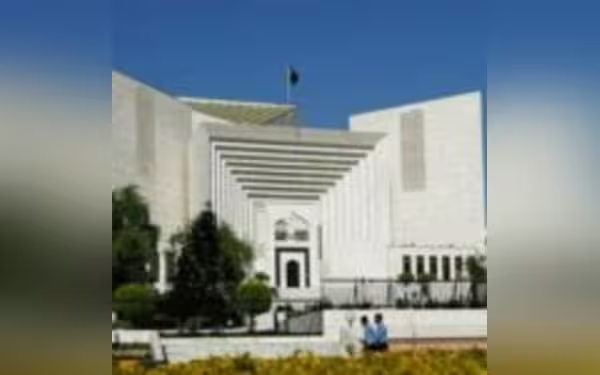Thursday, December 5, 2024 02:26 AM
Supreme Court Dismisses Petition for Direct Minority Votes in Pakistan
- Supreme Court rejects direct voting for minorities.
- Petitioner argues for equal representation in elections.
- Court emphasizes equal rights for all citizens.
 Image Credits: pakistantoday
Image Credits: pakistantodaySupreme Court of Pakistan dismisses petition for direct voting rights for minorities, emphasizing equal representation and constitutional rights.
In a significant ruling, the Supreme Court of Pakistan has dismissed a petition that sought to allow minorities to cast direct votes in general elections. This decision has sparked discussions about the representation of minorities in the political landscape of the country. The petitioner, J Salik, a former Minister for Minorities and the Convener of the World Minorities Alliance, argued that minorities should have the right to elect their representatives directly, similar to how women are represented in the National Assembly.
Currently, there are 60 seats reserved for women and 10 for minorities in the National Assembly. However, these seats are filled through a system of proportionate representation by parliamentary parties. This means that minorities do not have the opportunity to directly choose their representatives, which Salik claimed is a form of disenfranchisement.
During the court proceedings, the counsel for the petitioner emphasized the need for direct voting to ensure that the voices of minorities are heard in the legislative process. However, the Supreme Court's Constitutional Bench firmly rejected this argument. Justice Muhammad Ali Mazhar pointed out that the Constitution guarantees equal rights to all citizens, and allowing separate voting for minorities could lead to discrimination.
Justice Jamal Mandokhail also raised an important point regarding the terminology used to describe minorities. He suggested that the term 'minority' should be replaced with 'non-Muslim,' emphasizing that all citizens are equal under the law and the Constitution. This perspective highlights a broader issue of identity and representation in Pakistan's diverse society.
The Supreme Court's ruling underscores the principle that all citizens, regardless of their religious beliefs, should be treated equally in the eyes of the law. While the call for direct voting for minorities reflects a desire for greater representation, the court's decision reinforces the idea that any changes to the electoral system must be made through legislative processes by the parliament.
The rejection of the petition serves as a reminder of the ongoing challenges faced by minorities in Pakistan. It raises important questions about how to ensure that all voices are represented in the political arena. As the country continues to evolve, it is crucial for lawmakers and society as a whole to engage in meaningful dialogue about representation, equality, and the rights of all citizens. Only through such discussions can a more inclusive and fair political system be achieved.













